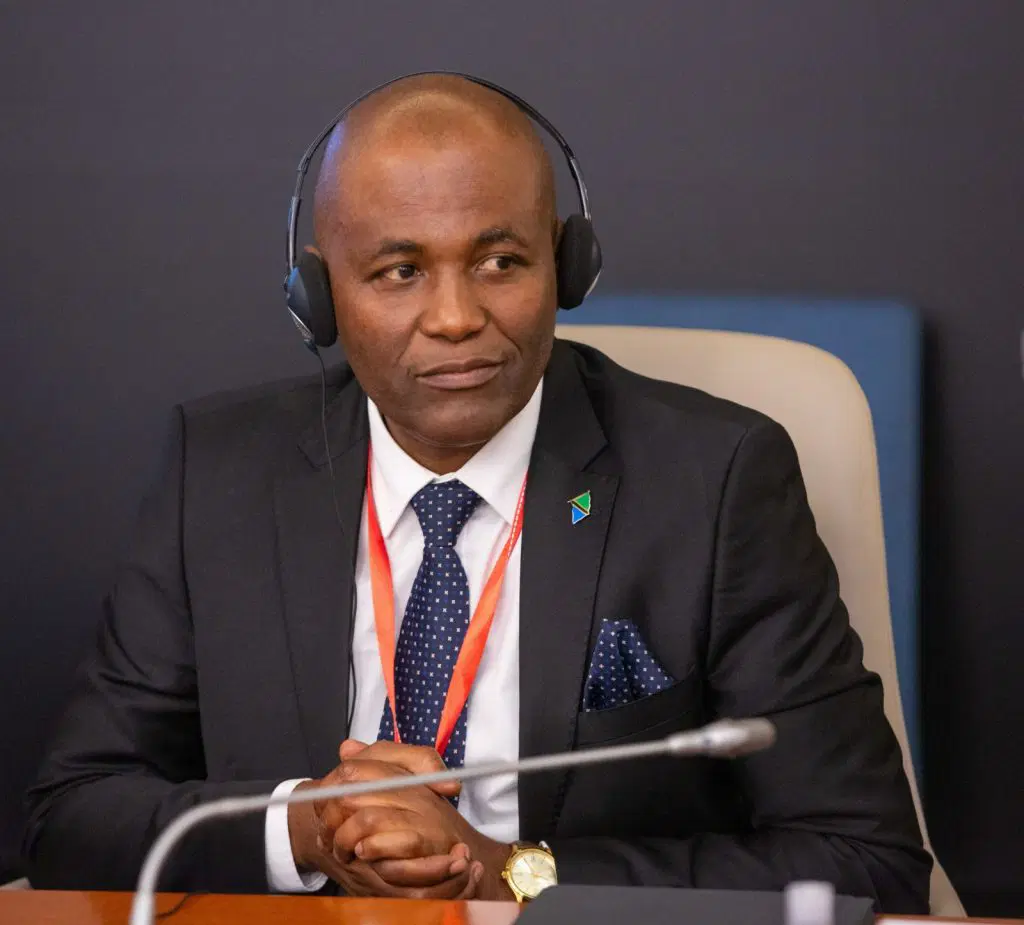Tanzanian incoming WHO Africa director dies at 55
3 min read
Dr. Faustine Ndugulile, the incoming regional director for the World Health Organization (WHO) in Africa, tragically passed away at the age of 55, just three months after being elected to the prestigious role. Ndugulile, a seasoned Tanzanian lawmaker and medical doctor, died on Wednesday morning while receiving medical treatment in India, according to the Speaker of Tanzania’s Parliament.
Ndugulile had made significant contributions to Tanzania’s healthcare system and was known for his unwavering stance during the peak of the Covid-19 pandemic. As the deputy health minister in 2020, he publicly disagreed with then-President John Magufuli’s approach to the pandemic. This disagreement, particularly his support for preventive measures like wearing masks, ultimately led to his dismissal from the ministry. However, he remained an influential figure in Tanzanian politics and healthcare, earning widespread respect for his dedication to public health.
In August 2023, Ndugulile was elected as the WHO’s regional director for Africa, succeeding Dr. Matshidiso Moeti of Botswana, who had held the position for two five-year terms. Ndugulile was set to assume his new role in February 2024, a position that would have allowed him to work on strengthening Africa’s health systems and addressing public health challenges across the continent.
The news of his death has left many in shock. WHO Director-General Tedros Adhanom Ghebreyesus expressed his deep sadness, calling Ndugulile’s passing “a great loss.” Tanzanian President Samia Suluhu also extended her condolences, acknowledging the profound impact of Ndugulile’s work.
While the exact reasons for Ndugulile’s treatment in India have not been publicly disclosed, his death has raised questions about the sudden loss of such a dedicated leader, especially given his recent election to one of the most important roles in global health.
Before his appointment to the WHO position, Ndugulile had a long and distinguished career in public health and politics. He represented the Kigamboni constituency in Dar es Salaam and held various significant positions within the Tanzanian government. Most notably, he served as the deputy minister for health, and later as the minister for communications.
In 2017, Ndugulile was appointed deputy minister for health, a role he held until he was unexpectedly dismissed in May 2020, amid the escalating Covid-19 crisis. Although no official reason was provided for his removal, many speculated that it stemmed from his public criticism of President Magufuli’s handling of the pandemic.
At the time, Magufuli had denied the severity of the virus, advocating for the use of unproven traditional remedies instead of following international health guidelines. Ndugulile, on the other hand, had warned against such methods, particularly the practice of inhaling boiled herbs, which he said could obstruct the respiratory system. Ndugulile’s stance on public health, including his consistent advocacy for masks and vaccines, set him apart from many of his political peers. His outspoken position on health safety led to tension with Magufuli, who dismissed him from the ministry during the height of the pandemic.
Despite the tensions, Ndugulile was later reappointed by Magufuli to serve as the minister of communications, a post he held until Magufuli’s death in 2021. Before his political career, Ndugulile had worked in the Tanzanian Ministry of Health, including serving as the director of diagnostic services. He was also instrumental in founding the National Blood Transfusion Services in 2006 and had worked with the US Centers for Disease Control and Prevention (CDC) in South Africa.
Tanzania’s nomination of Ndugulile for the WHO position reflected his years of experience in public health and his commitment to global health initiatives. Upon his election, Ndugulile expressed his dedication to improving healthcare across Africa, stating, “Together, we can build a healthier Africa.”
Dr. Matshidiso Moeti, the outgoing WHO Africa director, expressed her grief over Ndugulile’s death, calling it an “immense loss” for the continent and the global health community. Ndugulile’s passing marks the first time that a WHO regional director-elect has died before assuming office, leaving the process of electing a replacement as a significant challenge.
The political process of selecting a new WHO regional director is expected to be lengthy and complex, adding to the uncertainty surrounding Africa’s health leadership. As the continent continues to face pressing health challenges, the loss of Ndugulile represents not only a personal tragedy but also a setback in the fight for better healthcare for millions of people across Africa.







